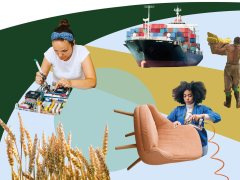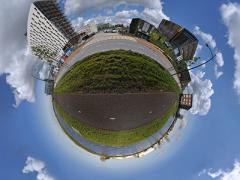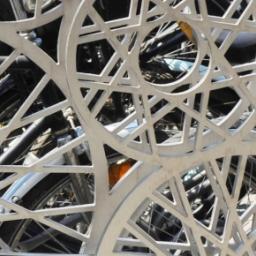Looking back on the Circular Economy seminar on 16 May 2022
On May 16 PBL Netherlands Environmental Assessment Agency held a seminar to discuss the risks and opportunities of the Dutch circular economy transition for low- and middle-income countries.
International impacts of the Dutch circular economy transition
Hester Brink, researcher at PBL, kicked-off the seminar with a presentation of the main messages of the PBL policy brief ‘Addressing international impacts of the Dutch circular economy transition’. A circular economy does not stop at the border, she argued, and taking an international perspective in circular economy policies is thus important. Working together with low- and middle-income countries can strengthen the Dutch circular economy transition, while at the same time contribute to achieving the SDGs abroad. To mitigate potential risks and seize opportunities requires safeguards and an inclusive approach, as well as enhanced coherence between circular economy policies, trade policies and development cooperation.
Panel discussion
In the subsequent panel discussion, led by Rob Weterings, head of the department Integrated Environmental Policy Analysis at PBL, the main messages from the policy brief were underlined and enriched. Panellists stressed that there is no such thing as domestic policies (every policy has international impacts) and that countries cannot achieve a circular economy on their own. Susanne Karcher, founding member of the African Circular Economy Network, expressed a concern about African countries being seen as waste managers, and the hope to use the circular economy to build meaningful jobs and create a valuable sector for secondary materials. With respect to a just transition, Patrick Schroeder, Senior Research Fellow at Chatham House, noted these principles are not yet part of current circular economy policies, but that one can learn from what is happening around the energy transition. Shunta Yamaguchi, Policy Analyst at the OECD Environment Directorate, argued for more transparency in supply chains, and expressed the need for common principles and standards (e.g. on recyclability, quality, quantity) and integration of circular economy principles in trade agreements. Finally, Jeske van Seters, Associate Director at the European Centre for Development Policy Management, talked about green industrialisation in Africa to create value addition rather than only exporting raw materials. She also underlined the unique role of the EU with for example the Sustainable Product Initiative.
Reflections from the Dutch government
The seminar was concluded with reflections from the Dutch government. Carmen Hagenaars, Deputy Director Inclusive Green Growth at the Ministry of Foreign Affairs, underlined that the report was very timely as they are currently working on a new policy on trade and development. She expressed the need to marry the circular economy and trade in her ministry. Increasing supply risks, such as those triggered by the war in Ukraine, are a strong driver. Marieke Spijkerboer, Deputy Director Sustainable Environment and Circular Economy Directorate at the Ministry of Infrastructure and Water Management, said that they learned a lot since the start of the circular economy programme. New targets for different product group are now being developed. She saw great value in the insights of the PBL study to include international aspects in these new targets. She also underlined the need to improve data and knowledge on impacts and trade.
What’s next
With this seminar, a two-year project came to an end, but PBL will continue to support the Dutch government in strengthening their circular economy policies and make the link with foreign trade and development cooperation.


